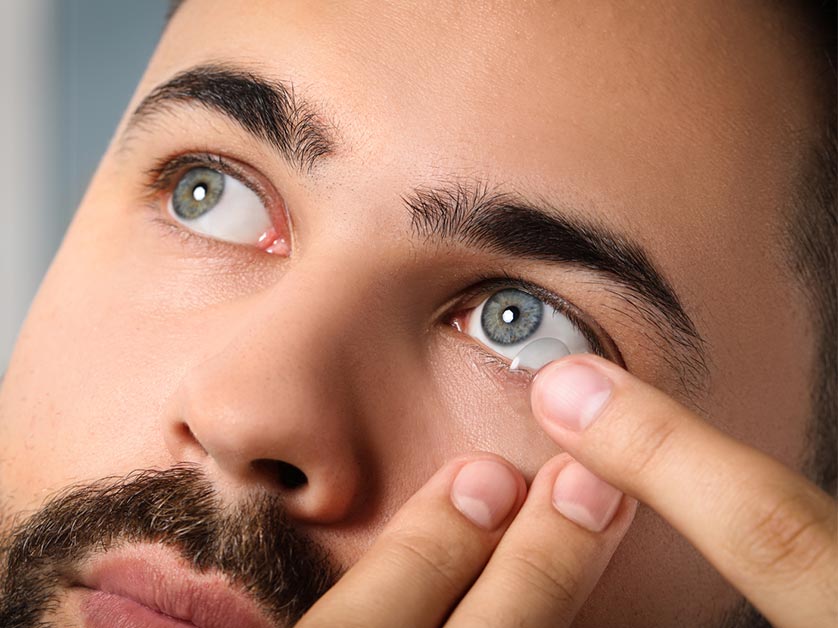Things That Can Make Contact Lenses Hard to Fit


Contact lenses are handy for many, but for some, they’re harder to fit than expected. Certain conditions, and even the shape of the eyes, can complicate the process. The expert optometrist Vienna Eyecare Center shares several reasons why your lenses might need customization and personalization to suit your needs.


Dry Eyes
Dry eye syndrome, prevalent in many, makes contact lens wear challenging due to reduced tear production or tear film instability. This condition leads to discomfort, irritation and sometimes blurred vision while wearing contact lenses. Solutions include using specialized contact lenses designed for dry eyes, such as soft contacts with materials that retain moisture and rigid gas-permeable (RGP) lenses, which hold moisture beneath the lens.
Astigmatism
Astigmatism is caused by an irregularly-shaped cornea, resulting in blurred or distorted vision. Traditional soft lenses often cannot correct the visual distortions caused by astigmatism due to their uniform shape. Toric lenses, both in soft and RGP varieties, are custom-made to accommodate these irregularities, providing clearer vision by correcting the specific refraction errors caused by the condition.
Post-Eye Surgery
Patients who have undergone LASIK or other refractive surgery may sometimes face challenges with standard contact lenses due to changes in the eye’s surface. Your eye doctor might recommend RGP as it will sit atop your cornea and offer clear vision despite your eyes’ post-surgical irregularities.
Presbyopia
As we age, our eyes gradually lose the ability to focus on close objects, a condition known as presbyopia. Bifocal and multifocal contact lenses offer a solution by providing different lens powers for distance and near vision correction in the same lens, catering to the unique requirements of presbyopic patients who prefer contacts over glasses.
Keratoconus
Keratoconus, characterized by a thinning and bulging cornea, presents a significant fitting challenge for standard contact lenses. RGP and especially scleral lenses are beneficial for keratoconus patients. These lenses vault over the cornea, providing a stable fit, improved vision, and comfort by preventing the lens from rubbing against the sensitive front part of the eye.
Vienna Eyecare Center is your go-to provider of eye care services in and around Fairfax, VA. Let’s help you find the perfect prescription contact lenses that are well-suited for your vision needs. Call us at (703) 938-7633, or fill out this contact form to schedule an appointment.
Recent Posts
Preparing for Your Eye Exam: Tips for Accurate Results
An eye exam is an essential aspect of maintaining optimal eyesight and overall eye health.…
How Stress and Your Mental Well-Being Can Impact Vision
In the bustling and picturesque city of Vienna, VA, Vienna Eyecare Center stands as a…
What You Need to Know About Dilated Eye Exams
Eye health is an essential aspect of your overall wellness, often overlooked until a problem…
Does Nearsightedness or Farsightedness Improve with Age?
Understanding the nuances of eye health, particularly how conditions like nearsightedness and farsightedness evolve with…
Are Thin High-Index Lenses Worth the Extra Money?
When it comes to choosing eyewear, particularly for those of us with strong prescriptions, we…
Signs It’s Time to Schedule Your Next Eye Appointment
Maintaining optimal eye health is crucial, not only for clear vision but also for overall…






